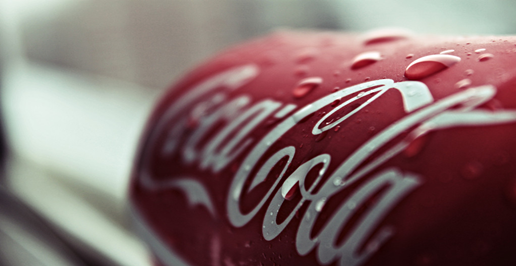

What do the brands Coca-Cola, Hubba Bubba, TuttiFrutti, Zara, Sasa, and Kit Kat have in common? Say them aloud and you will realize: They all have a repetition of sounds in their brand names. The sound of a brand can have a big part to play in its popularity, as recent studies have now shown.
According to an online report by EURIB, “research confirms that the sound of a brand name – and sound repetition in particular – drives the success of a product more than any other factor.” Three scientists, Argo, Popa, and Smith, have conducted six studies to show that consumers experience a positive emotional response when exposed to a brand name with a phonetic structure that draws heavily on sound repetition. “This emotion, in turn, has a positive effect on both their product selection process and their appreciation of the product”, says the report. Positive emotions can be evoked by brand names, especially when spoken out loud. The researchers have also taken the level of deviation from linguistic principles into consideration and designed a study to measure the influence. As mentioned in the report: “The results show that there are boundaries to the positive effect of sound repetition in brand names; the best results were achieved with the brand name that only slightly deviates from the linguistic principles of the English language.”
The use of sound repetition in brand names is often seen in Chinese brands. The following article will discussthe utilization of sound repetition or sound identity in Chinese brand naming.
Many international brands choose to keep the sound repetition of their brands when translating them into Chinese. There are different approaches to echoing the sound; one is to use the same character twice, another is to use characters with similar pronunciations.In some cases, characters with partially identical pinyin also work fine, Kit Kat being an example of this.
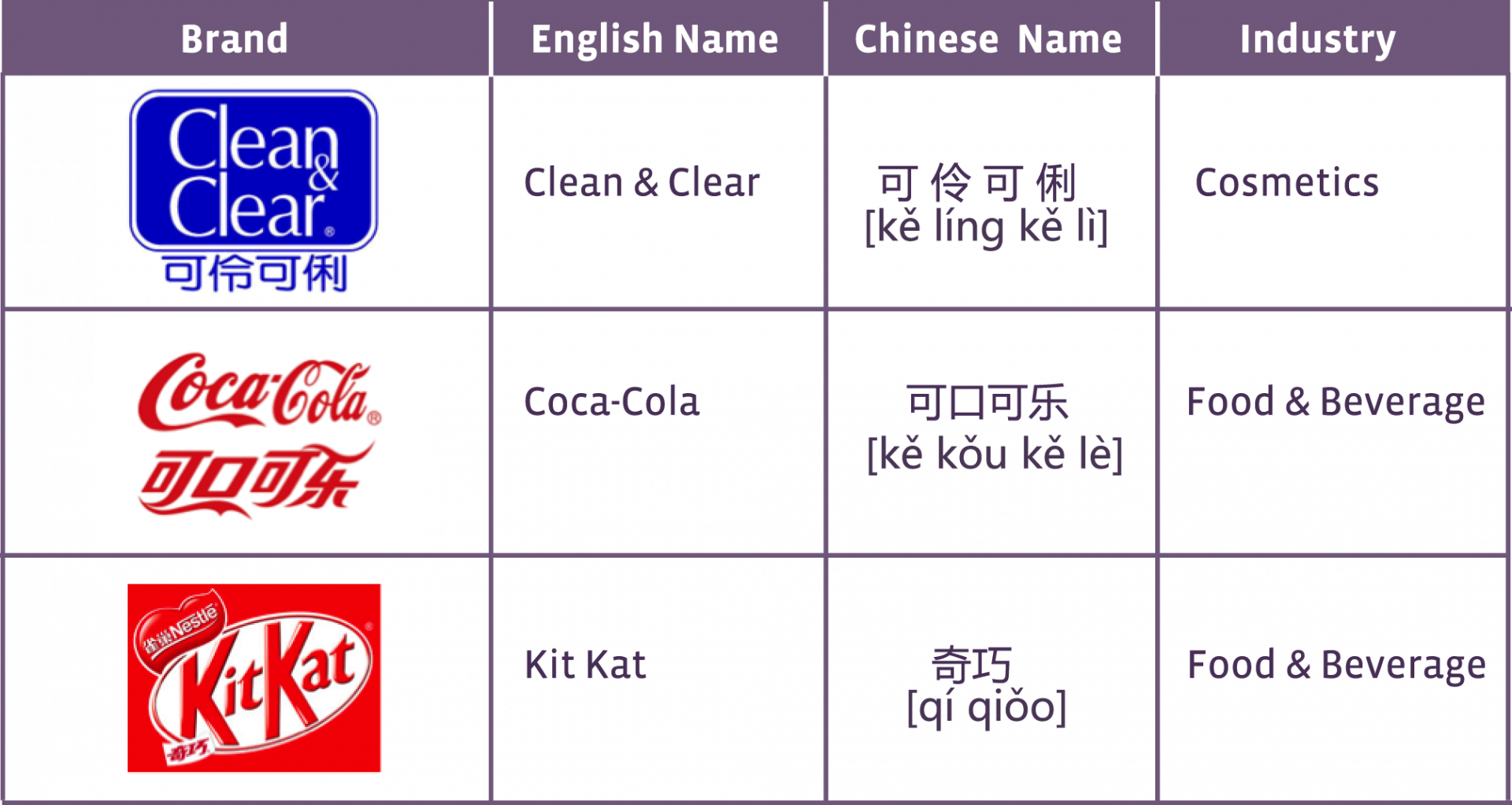
On the other hand,some brands decide to drop the repetition in Chinese naming.
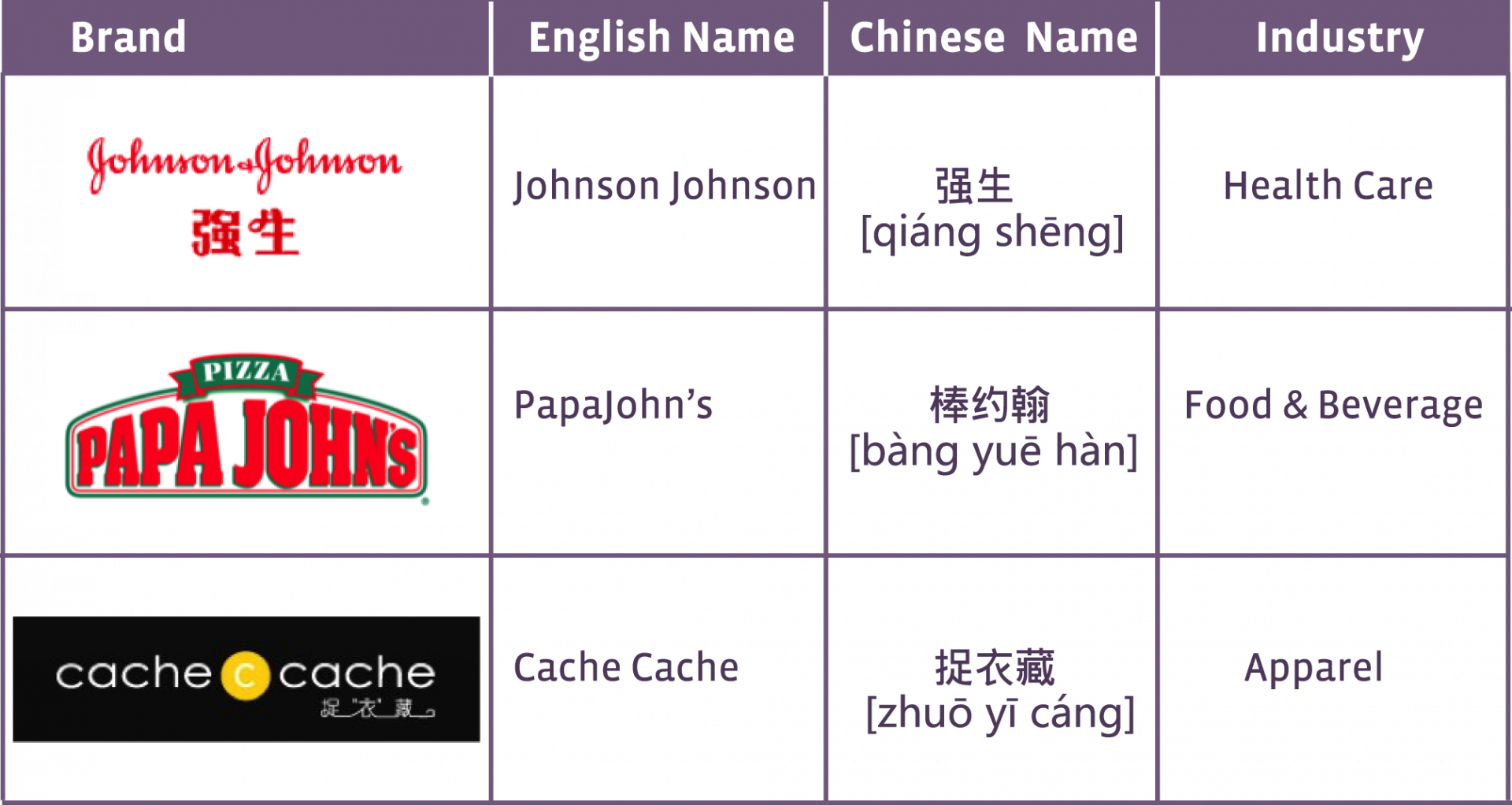
Repetition is also seen among local Chinese brands in all industries.
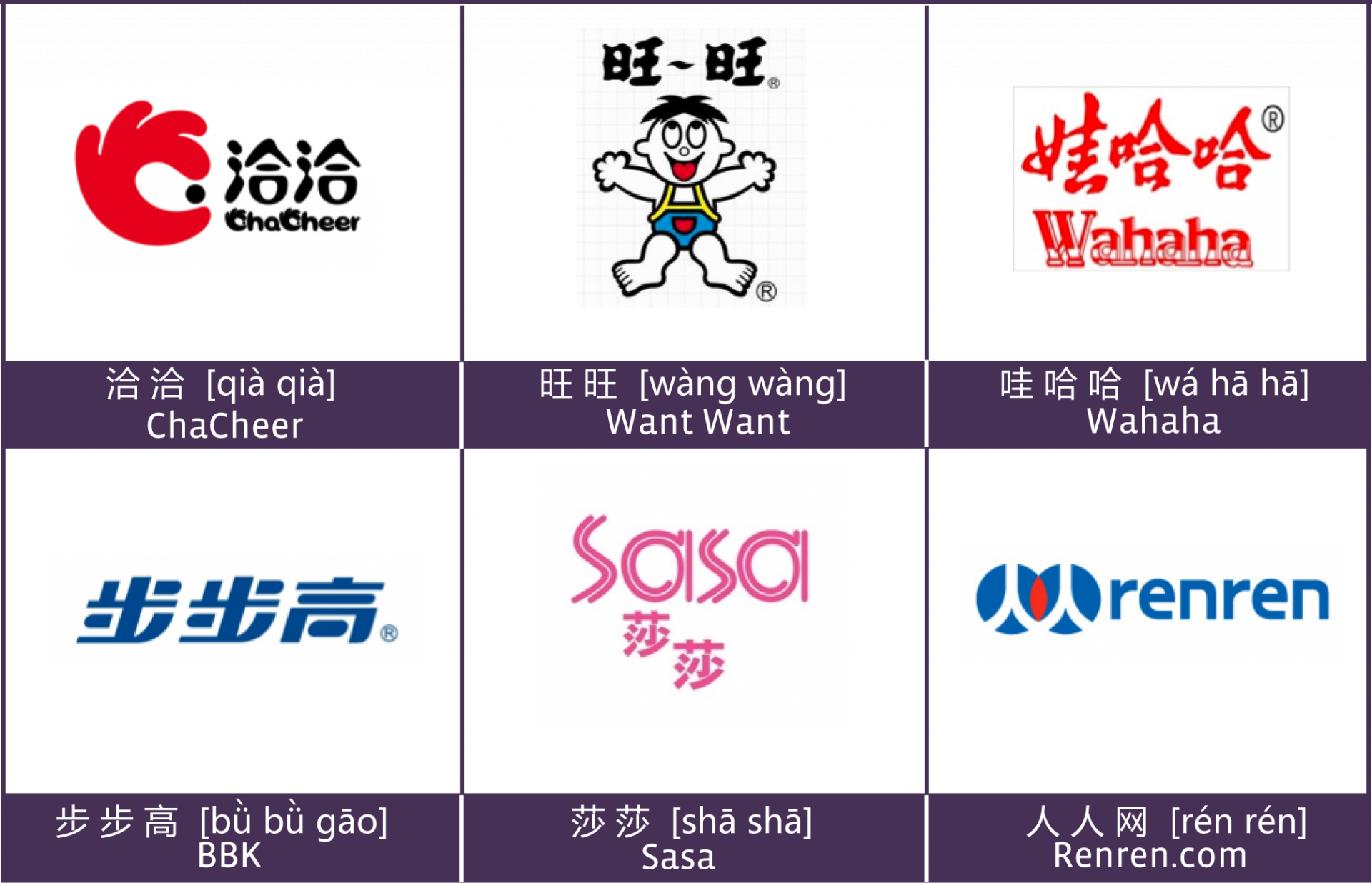
Interestingly, sound repetition is often found in child language: words like “mama”, “papa”, “nana” and “dada” seem to be universally used by children. Russian linguist and literary theorist Roman Jakobson suggests that, “in the beginning stage of child language only one sound can function distinctively within a given word. Usually the consonant changes, while the vowel remains unchanged.” This is to say that for instance when a child is learning the word “bi-te”, he cannot combine both sounds. So instead he repeats “bibi” or “tete”. Another fascinating point madeby the linguist is that “a child in full control of his language can suddenly take pleasure in reverting to the role of a baby… To a different degree, the infantile instinct may also appear in adult life…” People tend to baby-talk to babies or puppies/kitties. Jakobson has also stated that this so-called“sweet-talk” is often discovered between lovers.

Since sound repetition is present in the language of children as well as romantic sweet talk, it can conjure up feelings of nostalgia, pleasure, intimacy, and other positive evocations, which can then build positive brand perceptions if used in a brand name.
The linguistic rhetoric of repetition in the Chinese language is called “叠词” [diécí] or “重言” [chóngyán], referred to in linguistics as reiterative locution. There are multiple forms, including:
a) Imitation of a sound or description of a color
b) Description of an act or a physical/mental status
c) Exaggeration of atmosphere
d) Others
Reiterative locution in Chinese is a tool for the emphasis of concepts. It gives rhythm to the language, increasing its musical and poetic feel. The following table demonstrates how reiterative locution is reflected in Chinese brand names.
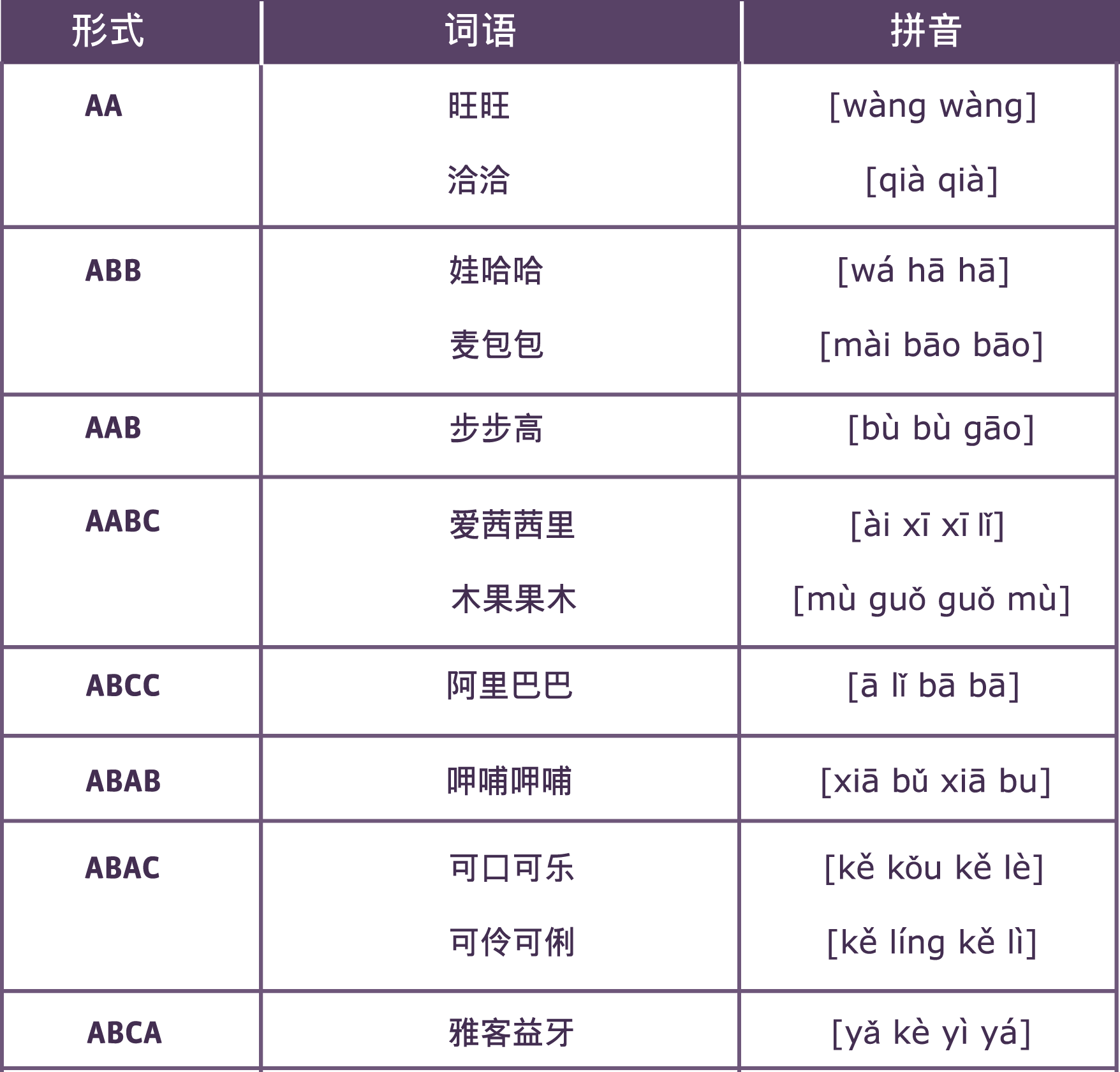
Among all the literary constructs, ‘AA’ is the most common one in Chinese brands. Brands such as 人人(网) [rén rén], 当当(网) [dāng dāng], 洽洽 [qià qià], 旺旺 [wàng wàng], 莎莎 [shā shā], and 杉杉 [shān shān] are widely recognized.
It is also a common practice for Chinesepeople to use nicknames that are the repetition of the last character in their name. For example it would be common for a person called陈若柳 [chén ruò liǔ] to be known to his friends as 柳柳 [liǔ liǔ]. Also famous personalities such as 高圆圆 [gāo yuán yuan], 蒋勤勤 [jiǎng qín qín], 范冰冰 [fàn bīng bīng] and 郭晶晶 [guō jīng jīng] thrive on the easy-to-remember nature of their names.In the west we find stars that have followed the same principle, like Lady Gaga.
The translation of the Coca-Cola brand in Chinese is an excellent example of maintaining the rhythm of the original name, as well as adding meaning to the brand. The characters used, 可口可乐 [Kě kǒu kě lè], translate as tasty fun, a quality that added value to the brand in China.On the other hand, PapaJohn’s brand has been experiencing many difficulties in the Chinese market. Would the case be different if they had kept the repetition of “papa” and named itself as “约翰爸爸” [yuē hàn bà ba]?
Sound repetition endows brand names with a musical and poetic feel, and can also inspire nostalgic or tender feelings of childhood. Since the positive emotions evoked by sounds repetition is evident, this represents an interesting brand naming strategy. However, because the Chinese market currently has a lot of AA-construct brands, in order to differentiate, alternative structures and other creative approaches should be considered.
A Labbrand Group Company © 2005-2025 Labbrand All rights reserved
沪ICP备17001253号-3To improve your experience, we use cookies to provide social media features, offer you content that targets your particular interests, and analyse the performance of our advertising campaigns. By clicking on “Accept” you consent to all cookies. You also have the option to click “Reject” to limit the use of certain types of cookies. Please be aware that rejecting cookies may affect your website browsing experience and limit the use of some personalised features.